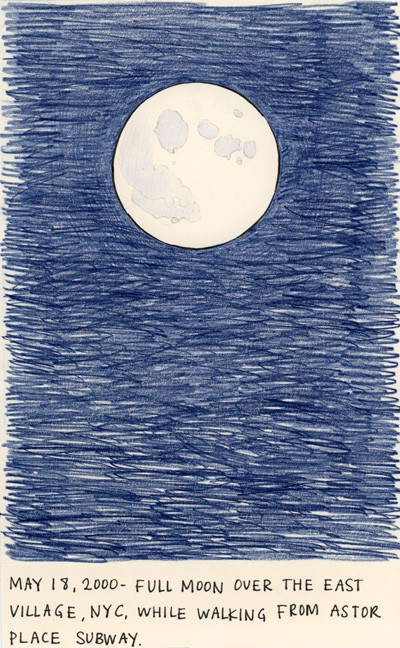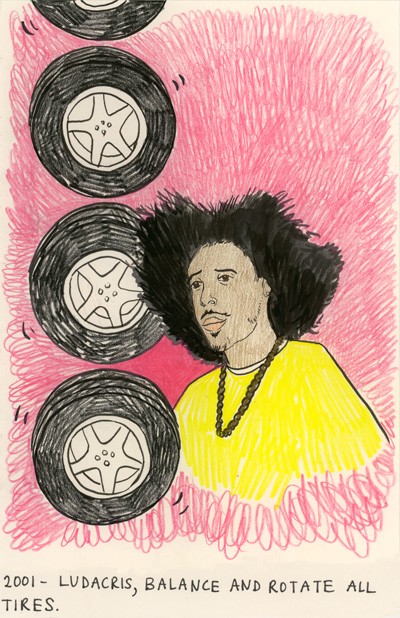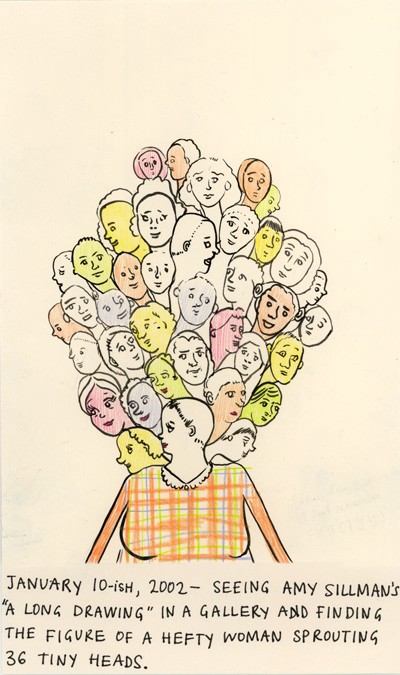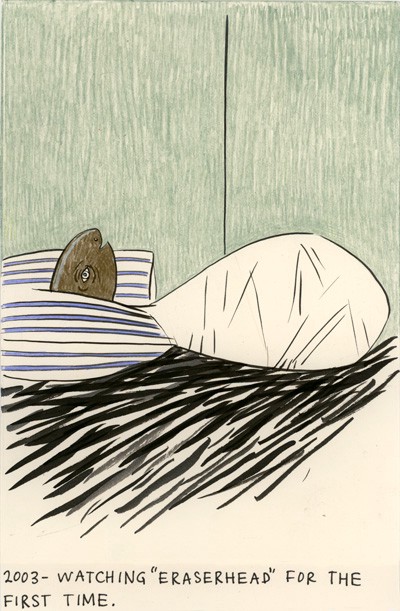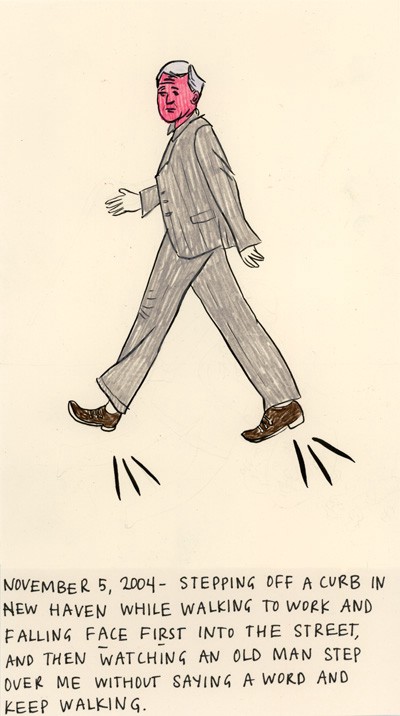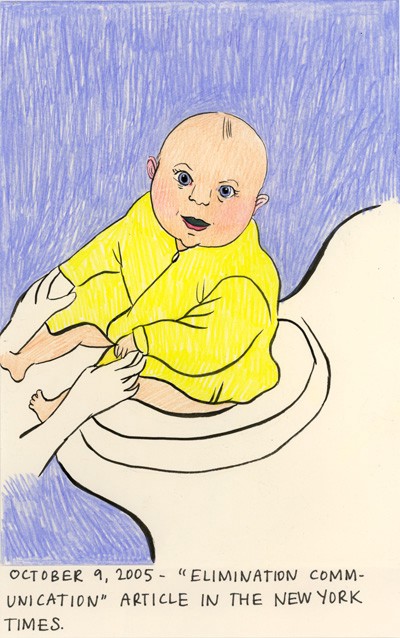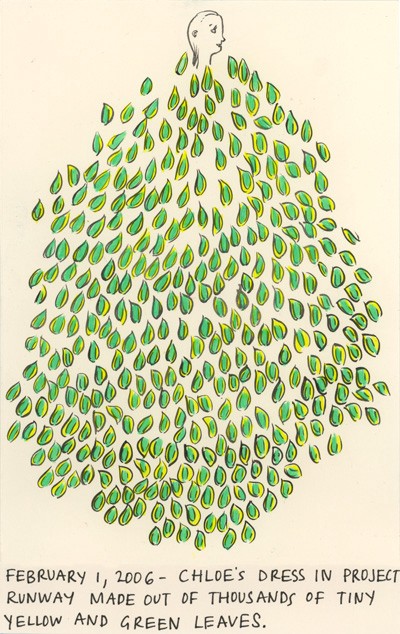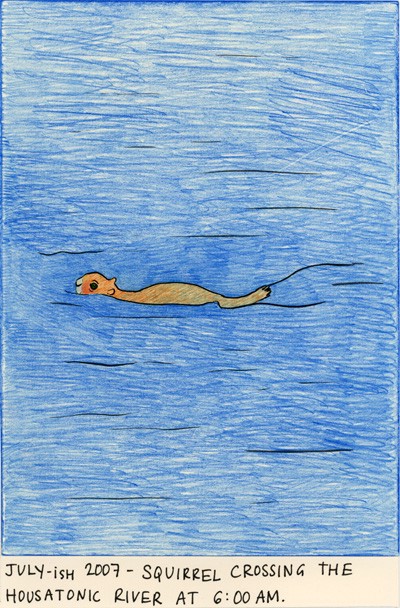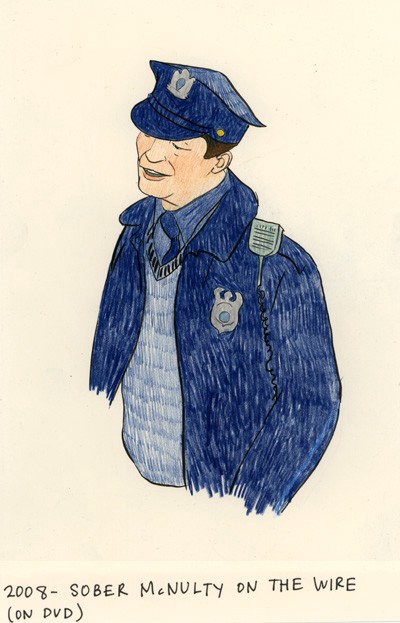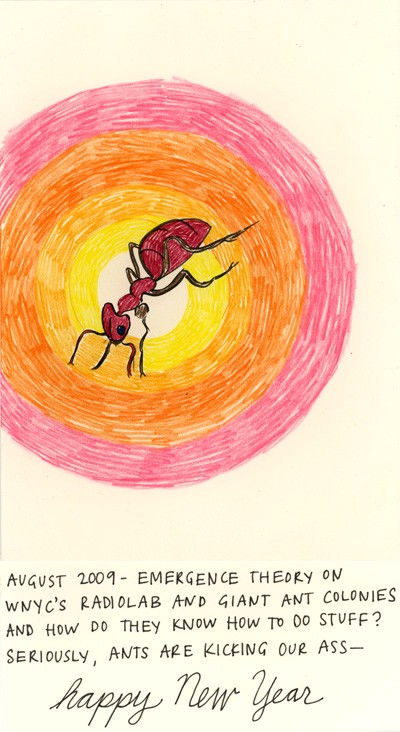The Real 'Main Street' Revolt

Taking about 8,400 words to arrive at a puzzled shrug, Steve Brill conducts patient readers of this week’s New York Times Sunday magazine through the elaborate reckonings of executive pay that have convulsed the seven firms benefiting from the federal Troubled Asset Relief Program. Brill, the former publisher of American Lawyer and able chronicler of the Washington bureaucracy’s response to Sept. 11, homes in on the agons of Kenneth Feinberg, the former 9/11 compensation master now tasked by the Treasury Department with the thankless work of serving as TARP’s “compensation czar.”
But as Brill chronicles Feinberg’s struggles, it soon becomes clear that as putative czars go, this one is quite chary of using much of his awesome power; he seems far less a sweeping, Nurse Ratched-style super-ego to the executive class than its chiding elder brother. Indeed, Brill notes in passing, Feinberg’s conciliatory mien was forged on the stickball fields of his childhood; his younger brother David, partner in Feinberg’s law firm, recalls that a 9-year-old Kenneth got his neighborhood pals to grant him the power to apportion talent.
That suggests the Feinberg kids enjoyed a strangely Socratic kind of childhood, but it’s not at all evident that this sort of serene difference-trimming is what a wheezing, corrupt and terminally smug Wall Street needs. As Brill writes, in taking on the executive compensation issue, Feinberg has been tilting against an arena of corporate enterprise where “a culture of entitlement has apparently become the norm”-so that in pursuing the chimera of a fair wage in a series of bloated, perk-addled executive suites, our compensation czar has touched off “a kind of proxy war between Wall Street and Main Street.”
If only. “Main Street” only appears in Feinberg’s labors-as in much of our reining political discourse-as a lazily executed rhetorical feint, in much the same way opinion on “the Palestinian Street” was invoked during past chapters of the intifada. In negotiating with the TARP beneficiary firms, Feinberg recalls, “What I tried to make them understand, was that if I didn’t do something, the public would revolt, and Barney [Frank] would surely do something more drastic that would endanger the whole system.” That, in turn, empowered Feinberg to assure his charges that he was not their disciplinarian so much as their cautious enabler: “I told them it wasn’t Citi or Bank of America or the others against me, it was Citi and me or B. of A. and me, against them”-‘them’ being the public.”
Leave aside for the moment that Barney Frank, who chairs the House Financial Services Committee, is currently presiding over a massive financial industry boondoggle being passed off, laughably, as “derivatives reform” and so is a rather unlikely wielder of pitchforks at the castle gate. Leave aside as well that setting oneself up against the public’s putative views is a novel philosophy of public service.
Consider instead what this coy, triangulating approach has yielded-a provisional cap for many TARP companies of $500,000 cash compensation, together with a wonderland of gaping loopholes. There’s the multiyear pay instrument called “salarized stock,” which like earlier deferred stock plans, largely permits senior management to sidestep seeming crackdowns on pay such as Chris Dodd’s provision in the stimulus law capping stock compensation at 50 percent of executive salaries at federally bailed out firms. (In the always egregious case of AIG-whose common stock was deemed all but officially worthless in house after the crash-Brill reports that this dodge worked out into a still more recondite formula: “a form of ‘phantom’ salarized stock that would reflect the value of only four AIG operating units that made money and had not been part of the company’s downfall”-a system roughly akin to a foreclosed homeowner being permitted to not only retain an underwater house but to purchase another one with a no-money down ARM because, well, the kitchen in the first building was really nice.)
After all, as one AIG executive whines in reference to the now-notorious TARP-financed retention agreements permitting himself and his peers to keep 75% of his artificially inflated 2007 bonus package: “Why should I simply walk away from a contract? I earned that money, and I had nothing to do with all of the bad things that happened at AIG.”
“The people who make these companies go work really hard,” chimes in another anonymous Stakhanovite executive at the firm, “They think: I’m making lots of money to support my family, but I’m not with my family. I can’t go to the soccer games or the dance recitals. Stop paying them well, and they’ll leave.”
Of course, a truly creative compensation czar could do worse than to grant these epically entitled souls-who, recall, only continue toiling at this inept, socially harmful institution thanks to $80 billion in public money-their evident wish, and tell them to see about providing for their families as a public-school soccer coach, or a 34-hour-a-week retail clerk in a ballet togs store. (Though a special set of arrangements would have to be worked out for those Wall Street titans who managed their families about as effectively as they performed in the mortgage sector: “A lot of our folks have second and third homes and alimony payments and other obligations that require substantial current cash,” one nameless banker soliloquizes to Brill. )
But Feinberg kept stoutly on his middling course, allowing his TARP charges to tender outlandish demands for compensation at the top-even while not one of the firms proposed a pay package that evaluated their executives beneath the 50th percentile of their alleged executive peer groups. (Nor did the TARP companies follow directions in the slightest for their submissions.) He then was able to issue his tenuous guidelines as tough greed-smiting measures in official press releases.
The announcements “made sure that each decision first recounted in detail what the company had initially requested and then outlined all the ways he was ruling against them,” Brill writes. “There was no hint of the multiple discussions that took place after the proposals were filed-after which most companies amended their demands and ultimately, if grudgingly, came to terms with the decisions Feinberg was going to tender.” Still less was made of the Feinberg’s unfortunate choice of the previous year’s salary figures as the baseline for instituting his diminished pay scale: “Of course, 2008 was the year the firms had all gorged on bonuses and perks as though there had been no crash, so the bar for prudence was hardly high,” Brill notes.
Still, Brill concludes that the Feinberg package was about the best one could hope for-and indeed, ends his epic review by wishing out loud that the corporate boards that govern big institutional investors could adopt some version of the plan. That might be a worthy start to more searching discussion of compensation packages, but Brill’s recommendation overlooks the main reason that Feinberg was able to hold any TARP recipient’s attention in the first place: The government had direct financial leverage-ie, real power-over the firms.
Institutional investors would have to organize their ranks in a far more concerted fashion than they ever have before-and resist the temptation to look the other way the moment that their portfolios recover much of the market ground they’ve lost, as is indeed presently the case. No remotely comparable force would incentivize them in the direction of greater disclosure and lower paydays for the many executives-cum-cronies who serve at the pleasure of most corporate boards-certainly not “the power of embarrassment” that Barney Frank gestures feebly at as a countervailing influence.
What could have countered Wall Street’s “culture of entitlement” was a culture of, well, bank nationalization-the kind of federal intervention that permitted FDR to stabilize the nation’s Depression-trashed banking system under the Reconstruction Finance Corporation, or that allowed Britain to consolidate its financial sector in the wake of the 2008 crash. Or failing outright nationalization, federal regulators could have voted their stock in TARP financed institutions, as any other shareholder does, and spared Feinberg his shadow-boxing confabs with our nation’s profoundly unembarrassable executive class.
There is, as it happens, another, potentially broad-ranging experiment in financial democracy now unfolding in Iceland, which as you probably recall, was routinely trotted out as a news-of-the-weird footnote to the 08 calamity when its flailing banking system forced the country in bankruptcy. At the end of the year, the Icelandic parliament-one of the world’s oldest legislatures-narrowly approved a plan originally floated in June for the nation’s taxpayers to guarantee loan repayments to British and Dutch creditors, thereby clearing the way for an infusion of $4.6 billion in IMF funds set aside for a Nordic bailout.
However, Icelanders organized a mass petition drive opposing the plan, since it amounted to a public bailout of the private bank at the center of the meltdown, the online concern known by the now bitterly-ironic name of IceSave. More than a quarter of the nation’s 320,000 have signed the document-enough to cause Prime Minister Olafur R. Grimsson to table the measure, for fear of his government’s failure.
If he winds up vetoing the plan, Parliament will either drop it or put it to a public initiative vote-not exactly a recipe for success, since 70% of Icelandic citizens oppose it in opinion surveys. None of this is necessarily to endorse an equivalent initiative drive on our own giddy free-market shores (though it’s hard to see how a public vote would have yielded a less sound rescue scheme than the seven-page draft for the TARP plan). It is, however, a useful reminder of how an engaged citizenry can insist on its own stake in high-profile financial decisions, without being caricatured as the shadowy, excitable and dangerously populist inhabitants of a mythical Main Street.
Chris Lehmann is definitely going to get a job in 2010.
Alex Balk's New Year's Resolution

I was walking over to The Awl offices this morning and I passed by a dad and his little boy who were walking in the opposite direction. The boy, who couldn’t have been more than four or five, was jumping up and down and yelling, “School day! School day!”
My first thought was, “Oh, you poor thing. That’ll change.” My second, almost simultaneous thought, was, “Jesus Christ, you cynical sonofabitch, give it a rest. When’s the last time you were that excited about anything? When’s the last time any of your joys were so uncomplicated, so direct, so purely expressed?”
I am not a big believer in New Year’s Resolutions or the like. I think that after a certain point you are pretty much locked into who you are, and any attempt at self improvement is both misguided and dangerously self-indulgent. But you know what? I’m going to try to make 2010 the year where I’m a lot more like that little boy than not. I mean, sure, we all know that life is really a tireless slog to the tomb where the very brief pleasures we take upon the way are illusory moments of bliss meant to blind us to the meaningless struggle of existence, but even with all that, I’m going to try to pretend otherwise. Because who knows, maybe once or twice it’ll actually work. Anyway, Happy New Etc. It’s gotta be better than the last one, right?
The End of the 00s: The 348 Best Reality Television Shows of the 00s, In Order, by Jon Caramanica
by The End of the 00s

348. The Girls Next Door
347. I Want to Be A Hilton
346. Denise Richards: It’s Complicated
345. Armed & Famous
344. That’s Amore!
343. Joe Schmo 2
342. Homeland Security USA
341. Jockeys
340. Hit Me, Baby, One More Time
339. Fame
338. On the Lot
337. America’s Next Top Model (season 2)
336. The Real World: Philadelphia
335. The Apprentice (season 5)
334. Kill Reality
333. Driving Force
332. Tori & Dean: Inn Love
331. The Little Couple
330. Nashville Star (season 6)
329. The Real Housewives of Orange County
328. Pussycat Dolls Present: The Search for the Next Doll
327. Superstar USA
326. Airline
325. The It Factor
324. American Juniors
323. Viva Hollywood!
322. DietTribe
321. Family Business
320. The Bachelor (season 11)
319. Ax Men
318. I Wanna Be A Soap Star
317. Hey Paula
316. The Apprentice: Martha Stewart
315. American Idol (season 8)
314. The Law Firm
313. R U The Girl?
312. Gone Too Far
311. Survivor: The Australian Outback
310. Invasion Iowa
309. A Shot at Love II with Tila Tequila
308. Are You Hot?
307. Pageant Place
306. Grease: You’re The One That I Want
305. Dancelife
304. Farmer Wants A Wife
303. The Principal’s Office
302. Average Joe: Hawaii
301. Chasing Farrah
300. Combat Missions
299. Your Mama Don’t Dance
298. Survivor: Borneo
297. Rock of Love: Charm School
296. Kimora: Life in the Fab Lane
295. Flipping Out
294. He’s A Lady
293. Looking for Love: Bachelorettes in Alaska
292. The Jacksons: A Family Dynasty
291. Gone Country (season 3)
290. America’s Most Talented Kid (season 1)
289. Randy Jackson Presents America’s Best Dance Crew (season 1)
288. Extreme Makeover
287. Confessions of a Matchmaker
286. The Surreal Life (season 4)
285. Pitchmen
284. A Double Shot at Love
283. The Biggest Loser: Second Chances
282. The Restaurant
281. College Hill (season 1)
280. Frontier House
279. American Loggers
278. Househusbands of Hollywood
277. The Next Food Network Star (season 4)
276. Last Comic Standing
275. Three Wishes
274. Flavor of Love 2
273. Ruby
272. 18 Kids & Counting
271. Dancing with the Stars (season 6)
270. Real World/Road Rules Challenge: The Inferno
269. Celebrity Fit Club (season 4)
268. Beauty and the Geek (season 1)
267. The Janice Dickinson Modeling Agency
266. Life of Ryan
265. Who Wants To Be A Superhero? (season 2)
264. The Bachelorette (season 1)
263. The Anna Nicole Show
262. Top Chef: Las Vegas (season 6)
261. Making the Band: O-Town
260. Age of Love
259. American Chopper
258. Baldwin Hills
257. Celebrity Mole: Yucatan
256. Big Brother 10
255. True Beauty
254. The Agency
253. The Bachelor: London Calling
252. The Biggest Loser: Families
251. Work Out
250. Mad Mad House
249. Sunset Tan
248. Outback Jack
247. Kathy Griffin: My Life on the D-List
246. Transamerican Love Story
245. Sex Rehab with Dr. Drew
244. I Want to Work for Diddy (season 1)
243. The Next Food Network Star (season 2)
242. My Fair Brady
241. Dr. 90210
240. Oprah’s Big Give
239. Rich Girls
238. Mr. Personality
237. Man Vs. Wild
236. Flavor of Love Girls: Charm School
235. Boot Camp
234. The Joe Schmo Show
233. Kendra
232. For Love or Money
231. WWF Tough Enough (season 1)
230. The Secret Life of a Soccer Mom
229. The Contender 2
228. Dog the Bounty Hunter
227. Dream Job (season 3)
226. Kourtney and Khloe Take Miami
225. The Family
224. Luke’s Parental Advisory
223. The Real World: Sydney
222. The Ashlee Simpson Show
221. Last Comic Standing 4
220. Celebrity Rehab with Dr. Drew (season 2)
219. ego trip’s Miss Rap Supreme
218. Varsity Inc.
217. Trick My Truck
216. Rock of Love with Bret Michaels (season 2)
215. The Cut
214. The Real Housewives of New York City
213. Boy Meets Boy
212. Road Rules: Campus Crawl
211. Deadliest Catch
210. The Moment of Truth
209. Running in Heels
208. Date My Ex: Jo & Slade
207. Real World/Road Rules Challenge: The Gauntlet 2
206. The Amazing Race 2
205. Living Lohan
204. Million Dollar Listing
203. Celebrity Fit Club (season 5)
202. Bands on the Run
201. Dice Undisputed
200. Supernanny
199. Tool Academy (season 1)
198. Daisy of Love
197. The Fashionista Diaries
196. Making News: Texas Style
195. Tabatha’s Salon Takeover
194. Survivor: Tocantins
193. RuPaul’s Drag Race
192. Celebrity Mole: Hawaii
191. Dancing with the Stars (season 3)
190. The Search for the Funniest Mom in America (season 2)
189. College Hill (season 4)
188. Scott Baio is 45… And Single
187. The First 48
186. Making the Band 3
185. Hopkins
184. Shear Genius (season 1)
183. Real World/Road Rules Challenge: The Duel 2
182. I Love Money (season 1)
181. I’m A Celebrity… Get Me Out of Here! (season 2)
180. The Amazing Race 11
179. The Gastineau Girls
178. The Assistant
177. Fraternity Life
176. Survivor: All-Stars
175. Rob Dyrdek’s Fantasy Factory
174. Blow Out
173. Dance Your Ass Off
172. America’s Most Smartest Model
171. Trading Spouses
170. Celebrity Fit Club (season 1)
169. The Bachelor: Paris
168. The Mole (season 1)
167. Jon & Kate Plus 8
166. The Bachelor (season 1)
165. Brat Camp
164. Skating With Celebrities
163. The Real World: Paris
162. She’s Got The Look (season 2)
161. Little People, Big World
160. I’m From Rolling Stone
159. Big Brother 11
158. Keeping Up With the Kardashians
157. For the Love of Ray J (season 1)
156. Hulk Hogan’s Celebrity Championship Wrestling
155. The Amazing Race 4
154. The Biggest Loser (season 2)
153. The Contender
152. The Bad Girls Club (season 3)
151. Gay, Straight or Taken?
150. Average Joe
149. America’s Next Top Model (season 3)
148. Run’s House
147. Toughest Cowboy (season 1)
146. The Real World: New Orleans
145. The Apprentice (season 1)
144. Real Chance of Love (season 1)
143. High School Reunion (season 1)
142. America’s Next Top Model (season 13)
141. The Amazing Race 7
140. The Fashion Show
139. Big Brother 7: All-Stars
138. Celebrity Rehab with Dr. Drew (season 1)
137. The Bachelor (season 4)
136. Rock of Love Bus with Bret Michaels
135. The Bad Girls Club (season 2)
134. America’s Got Talent (season 2)
133. Beauty and the Geek (season 2)
132. America’s Next Top Model (season 7)
131. A Shot at Love with Tila Tequila
130. Top Chef (season 2)
129. #1 Single
128. Big Brother 4
127. American Idol (season 6)
126. High School Reunion (season 2)
125. T.I.’s Road To Redemption
124. The Simple Life
123. Under One Roof
122. Til Death Do Us Part: Carmen & Dave
121. Dancing with the Stars (season 2)
120. Monster Garage
119. Parking Wars
118. Intervention
117. Temptation Island
116. The Rachel Zoe Project
115. The Real World: Las Vegas
114. $1,000,000 Tough Enough
113. Paris Hilton’s My New BFF (season 1)
112. Engaged and Underage
111. Wildboyz
110. Make Me A Supermodel (season 1)
109. Paradise Hotel
108. NYC Prep
107. Survivor: Samoa
106. From G’s to Gents (season 1)
105. Brooke Knows Best
104. Celebrity Rap Superstar
103. Who Wants To Marry A Multi-Millionaire?
102. HGTV Design Star (season 2)
101. Britney & Kevin: Chaotic
100. The Ultimate Coyote Ugly Search
99. Swords: Life on the Line
98. Ty Murray’s Celebrity Bull Riding Challenge
97. Joe Millionaire
96. Nashville Star (season 5)
95. Dream Job (season 1)
94. Bromance
93. The Real World: Hollywood
92. Growing Up Gotti
91. Teen Mom
90. Models of the Runway
89. More To Love
88. Strange Love
87. Survivor: Micronesia — Fans vs. Favorites
86. I Love New York (season 2)
85. Giuliana & Bill
84. Top Design (season 1)
83. Flavor of Love
82. Real World/Road Rules Challenge: Battle of the Seasons
81. The Cougar
80. The Osbournes
79. The Millionaire Matchmaker
78. Starting Over
77. King of Cars
76. The Starlet
75. Laguna Beach: The Real Orange County
74. Nashville Star (season 1)
73. So You Think You Can Dance? (season 2)
72. ego trip’s The (White) Rapper Show
71. Breaking Bonaduce
70. College Life
69. Viva La Bam
68. The Two Coreys
67. Stylista
66. Real World/Road Rules Challenge: Fresh Meat
65. Megan Wants A Millionaire
64. The Bachelor (season 13)
63. The Surreal Life (season 2)
62. Big Brother 2
61. Two-A-Days
60. Real World/Road Rules Challenge: The Inferno II
59. Newlyweds: Nick & Jessica
58. Randy Jackson Presents America’s Best Dance Crew (season 3)
57. American Idol (season 1)
56. Project Greenlight (season 2)
55. Project Runway (season 3)
54. Making the Band 4
53. The Hills
52. Meet the Barkers
51. The Pick-Up Artist
50. Pimp My Ride
49. American Inventor (season 1)
48. Real World/Road Rules Challenge: Battle of the Sexes
47. Adventures in Hollyhood
46. Legally Blonde The Musical: The Search for Elle Woods
45. Project Runway (season 2)
44. Confessions of a Teen Idol
43. The Real Housewives of New Jersey
42. Hoarders
41. Can You Duet? (season 1)
40. American Candidate
39. Gone Country (season 1)
38. The Locator
37. The Real Housewives of Atlanta
36. Black. White.
35. Top Chef (season 3)
34. Wife Swap
33. The Scholar
32. The Bachelorette (season 4)
31. Jersey Shore
30. The Amazing Race 6
29. The Celebrity Apprentice (season 1)
28. Greatest American Dog
27. Punk’d
26. The Player
25. Survivor: Cook Islands
24. So You Think You Can Dance? (season 4)
23. The Paper
22. I Know My Kid’s A Star
21. My Super Sweet 16
20. Beauty and the Geek (season 3)
19. I Love New York (season 1)
18. American Idol (season 5)
17. Big Brother 5
16. Jackass
15. The Amazing Race 12
14. The City
13. Big Brother 8
12. 16 & Pregnant
11. 30 Days
10. America’s Next Top Model (season 8)
9. Making the Band 2
8. Amish in the City
7. Being Bobby Brown
6. Made
5. Queer Eye for the Straight Guy
4. Extreme Makeover: Home Edition
3. American Idol (season 2)
2. Kid Nation
1. The Bachelorette (season 5)
(The worst is Ace of Cakes, by the way.)
Jon Caramanica writes about popular music for the New York Times but manages to watch a lot of TV.
The End of the 00s: New Year's Eve and the Rise of the Machines, by Richard Lawson
by The End of the 00s

I have a friend who just moved to Valparaiso, Chile-a beautifully-situated stutter of city teeming with feral dogs and nefarious purse snatchers. It’s sad for me that this friend, a Best Friend if ever there was one, will be spending the last glimmering twitches of this decade in a place so thief-ridden and faraway, because we spent the first early ticks of it together, freezing and sick in the Boston Common. It was actually the night that we first became real friends, not just two kids working on a play together, not just two people who occasionally passed each other in the same lazy social orbit. We bonded that night, felt a first giddy fear and excitement together. It was New Year’s Eve 1999, that heady night when it felt like the world could maybe, just maybe, end entirely. Because of some glitchsomething to do with nothing more mundane or simple but oddly poetic as the changing numbers of the dateall the computers in the world could explode and we’d be tossed into darkness, forced to reignite primordial fires and warily navigate a reset world.
Of course that didn’t happen. Didn’t happen in Sydney, didn’t happen in Hong Kong, and certainly didn’t happen in cobbled old Boston. Rather the date ticked forward and we all sorta shrugged our shoulders and, let’s be honest, felt a little cheated. Mad Max coulda been kinda fun for a few days, right? But, oh well, it was time to go off and finish the night, to trudge off to a friend’s house and watch the original pilot of Buffy on VHS. (This is actually what we, nerdy and painfully sober theater losers, did in the first wee hours of the millennium. The old Willow was so weird!) In the days afterward there was some brief breathless coverage about how we narrowly avoided catastrophe, but mostly everyone just sort of shuffled on with the business of living and the whole hysteria was soon forgotten, just a little antiquity of fear, like the original War of the Worlds broadcast or Steve Guttenberg. How silly we were to worry!
Though now, ten steely years later, I’m beginning to wonder if maybe Y2K did get us after all. Maybe it really did happen, just in a far quieter and more insidious way than we’d imagined then. Here I am sitting in a cafe where not only is magical internet available without a plug, but it’s fast, so fast. And some of you might be reading this on a little phone, rumbling home or away on a train, or waiting dully for a bus. Maybe the computers really did destroy us at the start of, and continued to do throughout, this decade of surreal wonders and gut-wrenching, grimly terrestrial horrors.
The essential fear of Y2K was that something we’d created, and had come to so heavily depend on, could suddenly fail usthat we could plunge into chaos because we’d built our tower of techno-Babel too precariously high. Y2K was viewed by some as something of a possible corrective, a stern slap on the wrist for ceding so much of our innate human power to whirring processors and cold electronic blips. If all systems had, indeed gone down that night, then it would have been proof that we had gotten too ahead of ourselves, too outside of ourselves. The tin-foil-hatters among us would have been proven right to have been demanding a return to nature. We needed to learn to not trust these machines, to finally determine if they worked for us or we for them. But that didn’t happen, so we breathed a sigh of relief, and sallied forth and created this gizmo decade.
But perhaps this was the machines’ plan all along! Maybe it was SkyNet’s grand stratagemto instill in us a rising anti-tech mania, only to alleviate it and show us that there is nothing to be so scared of after all. Just like kidnappers first have to strike fear into their captives’ hearts before Stockholm Syndrome can set in and a strange new trust is born, the machines needed us to first doubt their goodness, and then be blessedly reassured of their good intentions in the end. It was a catharsis that was entirely necessary if we were to embrace these mechanical creatures as fully as we have these past ten years. Orgo-Techno hybrids are mostly thought of as the fantasy stuff of Battlestar Galatica, except they’re really not. How subsumed and swaddled we have become this past decade! We’ve our glowing and app-filled iThingsexternal organs!clutched firmly in hand, and we are braying and shrieking for more, always more. It’s exactly what those damn ‘puters wanted us to do. They knew that if they threatened to break down and leave us all alone on this bitter shit-rock of a planet, but then in the eleventh hour reappeared and said “Just kidding!”-well, they’d have us forever. And have us they do.
Y2K happened, y’all. The computers actually did destroy us, they just did it more slowly and smoothlya gradual, bloodless coup. I don’t own an email-computer-phone yet, but I will. Of course I will. Of course all of us will. And then we’ll own whatever comes next. Nowadays watching people freak out and tear at their hair when the Internet goes down in a coffee shop isn’t scary in the way it would be in a movie from the 80s (or in a recent South Park episode), it’s just sort of a funny indicator of humanity’s big, silly loss. Yeah, we got beat and beat good.
And that’s OK, I suppose. Years are years, decades decades. Things change. Civilization rises and falls like body and breath. This is just the thrum and dip and recede of living. This year for New Year’s Ima-be drunk, not in Boston, and, sadly, probably not watching Buffy. But you know what I might do? I might open this laptop and, through a few quick easy finger taps, have my old friend there, live on screen. We can talk, smoke cigarettes, tell jokes, and genuinely celebrate (for the only night of the year, really) the passing of time.
Though we won’t actually be huddled close, cursing New England or other cold climes, we’ll still be together. Bonded and woven together by new invisible threads, reaching out across this cool blue planet, saying silent thank you’shumbly grateful for the magic moment it has given usto the great conquering Computer. That creature we watchedten years ago now, wide-eyed and sixteen and unawareas it raised its steel-gray head and, with a wise smirk, did nothing at all.
Richard Lawson works with, or maybe for, the machines.
The End of the 00s: Down Under the George Washington Bridge Overpass, by Matthew Gallaway
by The End of the 00s

It was one of those late November days for which the decade will perhaps be remembered, a day that should have been cold but was not. Stephen and I decided to take a walk to the Hudson River, and though the air felt good -the way it does in late spring, when you put away your jacket for the season -I could not shake a sense that there was something unhealthy about it, as if I had mistakenly wandered onto the grounds of a hospital.

The early-afternoon sun, low in the late-autumn sky, reflected off the water and infused the landscape with an oversaturated, celestial light, which-because we were alone-added to the quiet, surreal quality of the scene. We decided to head north, safely upwind from the sewage treatment plant in Harlem, and as we turned away from the hazy outline of the buildings downtown, it felt as if we were the only two people alive, leaving the city for the last time.

I paused to examine a patch of white clover (Trifolium repens), some of which was in bloom.

‘There’s so much I would like to forget about this decade,’ I said to Stephen after we continued, and then passed the bloated corpse of an unemployed man who had been killed by a death squad after testing positive for HIV and left to rot in the bushes.

‘No, that’s not until 2013,’ Stephen corrected me, after ____ is elected President. ‘But let’s not talk about politics,’ he quickly added. I nodded; it seemed futile to rehash the wars, the income disparity, the stagnation of civil rights, the environmental degradation, the religious fundamentalism, the insidious promulgation of stereotypes by the advertising-entertainment-media complex, the lack of universal health care and the increased corruption at every level of government (to name just a few items) that marked the previous decade and-with the exception of a few small plateaus in the downward trajectory-the three before that, i.e., my entire life.

I remembered the first time Stephen brought me to this stretch of the Hudson River-and shortly after that, to live with him in Washington Heights-almost exactly ten years before this present walk. Having returned here often enough so that I associated this spot with the passing years, I knew that my appreciation for its beauty-or more to the point, the artifice that is ‘nature’ in the metropolis-was an unexpected consequence (or benefit) of my decision to ‘come out’ as a non-heterosexual, this too in conjunction with meeting Stephen. Like a person whose full spectrum of sight is miraculously restored with a knock on the head-or an arrow through the heart-I began to perceive my surroundings in a manner that felt less prescribed than inspired, as if I were responsible for creating the world in which I lived, and not the other way around.

If this process was one of assessment, both of those around me and my own character-the qualities and weaknesses I had long tried to dismiss or ignore as I devoted myself to hiding the biggest ‘flaw’ of all-it had also led to my withdrawal (to the extent possible) from those parts of society to which I had grown accustomed but could no longer endure (or that could no longer endure me). Although I could not have explained it in such terms at the beginning of the decade, to move to Washington Heights-a neighborhood in which I was a ‘minority’ in almost any sense of the word-had transformed me into an ‘outsider’ or foreigner, and brought into relief the kind of fear and hatred that so often defines relations between those who hold power and those who do not.

As we walked through the decrepit ruins of the esplanade, I dismissed a tendency to romanticize the past, along with any inclination to see it restored. ‘Let’s not talk about real estate, either,’ Stephen cautioned me, and again I nodded, understanding that the fate of the city, much less the waves of capital and reconstruction that drive its relentless mutation in the modern era, is almost beyond the comprehension, and certainly the control, of any person.

We approached a small grove of evergreens, and I thought about a few things of importance (speaking subjectively, of course) I had learned in the past decade, such as how to tell the difference (or, well, most of the time) between a spruce and a pine and a deciduous conifer such as the dawn redwood, several of which could also be found nearby.

We stopped to admire an impressive Eastern White Oak (Quercus alba) that held a few remaining leaves.

A crabapple tree (part of the Rosacea family) laden with fruit seemed like a promising sign for any birds who planned to remain north for the winter.

As did the elderberry bushes, which grew vigorously in the underbrush next to the train tracks.

A depression in the ground was overflowing with acorns, which made me wonder if the squirrels near our apartment-the ones who battled the traffic and rats-knew about this bounty next to the river. So much of life, it seemed, was rooted in contingency, i.e., the luck (or bad luck) of where and when we happen to be born and the infinite circumstances-most completely beyond our control-that may or may not unfold as we muddle along during the time allotted to us. If we’re fortunate, we may be given the opportunity to arrange the events of our past to make them seem as if they were ‘meant to happen,’ but this is really a dramatic facade that allows us to avoid thinking about the more obvious truth, which is that we are all susceptible to any of an infinite number of unforeseen causes and effects.

Back on the water, a group of mallards paddled by, and I wondered if they lived on the river year-round, or if like us they were just passing through.

The shoreline was littered with debris, some of which could have been fragments from Atlantis.

And some of which was less interesting.

As we approached the George Washington Bridge, I contrasted this marvel of aesthetics and engineering with the detritus in its shadow, and was struck by the dissonance between the product and the byproduct of the city, along with the futility of thinking-as I had most certainly done when I was younger-that anything approaching a state of perfection or ‘harmony’ could ever be achieved.

A wall erected in the wake of 9/11 prevented us from getting too close to the towers.

We walked around to the other side, and were amazed to find sunflowers in bloom behind a security fence.

In the distance we could see the lighthouse, which made me feel oddly hopeful, although about exactly what I could not have said.

I knew that once, I was lost in the weeds.

And yet here in the weeds I had also been found.

Matthew Gallaway is a writer who lives in Washington Heights. His first novel, ‘The Metropolis Song,’ will be published in 2010 by Crown.
The End of the 00s: Personal Statements, by Luke Mazur
by The End of the 00s
I have anxiety about not living in a place with food trucks. Their eclectic menus and their varied proprietors, for me, represent a sophisticated and cultured world. A diverse one. Buffalo, of course, has a few hot dog carts stationed downtown and a few more Mister Softee trucks circling neighborhoods during the summer months. When I see how people line up at taco trucks in Los Angeles or pickle carts in New York, I become envious. Back in the 1990s, Hannibal Lecter explained that we covet what we see every day. And in this decade, it seems that every day I read a story about food trucks. So I covet them.
In college we had food trucks. We had so many that my friend Zeb was able to cancel his meal plan halfway through Freshman year and take almost all of his meals from those dingy mobile kitchens. There was Hemo who made chicken sandwiches with special sauce, and replied in Pashto when he overheard Zeb’s dad yelling at Zeb’s brother Amir in the same language. Hemo had t-shirts too, with his name emblazoned on the front in Microsoft Word block lettering. Some of us bought one (or two) because credit was still cheap, and still our parents’.
There was the Greek Lady, who served just about anything, and who had a spinoff truck, and after that a spinoff storefront that taught us about market saturation in spite of good branding. Her meatball hoagies with store bought everything reminded us of our working mothers or our suburban high school cafeterias. And, of course, there was the Mexi-Cali dude, who prepared these awesome plantain burritos, but who was also such a dick and who we would’ve called a taco Nazi had we not be so affected by our Representations of the Holocaust in Literature and Film class.
But we loved Bui the most. His food truck was roomy enough to fit a few people-typically his daughter and his wife. And we loved them too. Often we joked that his daughter was his wife, and his wife was, I guess, not really his wife. Or maybe not his wife anymore. I don’t remember. Either way, it was dumb, and we were most likely hung-over: even though Bui and his girls served mostly Chinese food, everyone I knew went for the delicious egg sandwiches. The fried eggs were served on a hoagie roll, and priced such that most days we could pay for one with the quarters we stole from our roommate’s laundry change cup.
My roommate Aalok ordered just egg and cheese, because he is vegetarian and Jain. Zeb ordered steak, egg and cheese-which was really just a cheese steak with fried egg on top of it-because, as a Muslim, he doesn’t eat pork. The Tri-Delts ordered egg white sandwiches and my friend Jamie ordered hers with Sriracha, because she is from California and so has better taste than the rest of us. Bui let everyone do his or her thing-a thing that was informed by culture or religion or ethnicity or geography, and a thing that because we were college students, we shared with and explained to others.
At about the same time that we were ordering breakfast sandwiches that were actually windows into our pasts as prologues, Sandra Day O’Connor handed down Grutter v. Bollinger, the Supreme Court decision that saved affirmative action. The question presented to the Court was whether the University of Michigan Law School’s could factor an applicant’s race into its admissions decisions. O’Connor’s short answer was that yes, the school could continue with its affirmative action policy. Her long answer explained why doing so furthers both Michigan’s and the country’s “compelling interest” of diversity in higher education.
Politically speaking, at least on the Supreme Court, SDO often took the middle ground among the nine. Her vote was usually the fifth vote for whichever side she liked more. This meant that a fussy woman in her seventies would write the most controversial, decisive decisions the Court would hand down this decade, and the one that preceded it. A decision about something complicated and messy, like affirmative action, would become a decision about something agreeable and American like why we order the breakfast sandwiches we do. Instead of settling scores about past discrimination, O’Connor paid lip service to diversity.
In her concurrence, Ruth Bader Ginsburg told a more explicitly racial story: one that begins with slavery, and continues through Brown v. Board of Education, and then ends who knows when. She explained that at present, “many minority students encounter markedly inadequate and unequal educational opportunities,” and implied that affirmative action programs exist in part to correct for racial discrimination. Her opinion is short, but she tipped her hand, I think, at how she would write the majority decision if the task were hers. She’d directly address the societal inequality that affirmative action, however imperfectly, seeks to redress.
Like many Supreme Court justices, SDO is a good lawyer; she didn’t just pull “diversity” out of her penumbra. She used precedent to explain herself-a tactic in which lawyers and judges retweet the law established by an older decision in order to substantiate what they’re arguing. In the Michigan Law affirmative action case, O’Connor retweeted part of a 1970s affirmation action case called Regents of the University of California v. Bakke.
We know now that retweets, with their 140 character limit, necessarily leave out information. And so too with sneaky lawyers employing precedent. Justice Powell, who O’Connor retweeted, decided that affirmative action was kosher so long as it helped foster diversity. But Bakke was a fractured opinion, and he was writing only for himself. The other eight Justices had different ideas and didn’t sign onto his conclusion. Four would’ve held that affirmative action helped correct past discrimination; the other four that it violated the Constitution because the policy wasn’t colorblind enough.
But twenty-five years later, O’Connor seized Powell’s diversity argument and dodged the discrimination and the colorblind stuff. She explained that our future depends on leaders “trained through wide exposure to the ideas and mores of students as diverse as this nation of many peoples.” Michigan’s admissions policy, among other things, enabled students “to better understand persons of different races.” And diverse student bodies meant “livelier, more spirited, and simply more enlightening and interesting” classroom discussion. Word.
By telling us how to get to Sesame Street, she also reframed the conversation. She transformed affirmative action, a policy pretty obviously about groups, into something that implicated all of us as individuals. Which is to say, personal statements are the new quotas, and confession is the new racial discrimination. Every facet of us is a lesson, a teachable moment. Even what you ordered on your breakfast sandwich.
In dissent, Justice Scalia wondered aloud (and annoyingly) that if a law school could use affirmative action to admit a group of students who would “convey generic lessons in socialization and good citizenship,” how was it not OK for civil service system of the State of Michigan to do the same? I mean, touche.
But maybe this is the underrated genius of Grutter. Maybe the civil service exam of Michigan should include a personal statement. This decade, like the ones before it, we continued to make “we” about “me.” And Sandra Day O’Connor finally let us off the hook for it. Figuring out what to do about inequality? That’s hard. What I ordered at Bui’s? So easy.
Bacon, egg and cheese. Salt, pepper and ketchup. Every time.
Luke Mazur is an energy-efficient bulb in the City of Light.
The End of the 00s: The Life of the Party, by Doree Shafrir
by The End of the 00s

It was 2004. We lived in Philadelphia. I’d bought a house in June on South 13th Street, in a neighborhood that had at one time been nearly all Italian but was now a mix of Mexicans, gays, Vietnamese, and Urban Outfitters employees. Real estate was cheap. I had an adjustable-rate mortgage. I rented out the downstairs apartment to a costume designer with bad credit and Moe moved into my second bedroom upstairs. I worked at an alt-weekly and rode a bike.
We had spent that spring and summer hanging out. I was sort of single for most of it, which is the best way to be in the summer. We saw Eternal Sunshine of the Spotless Mind and drove to Atlantic City afterwards; we got pulled over on our way out at 3 in the morning and my friend flirted with the police officer and didn’t get a ticket. I was in a band with her boyfriend and a couple other guys. Everyone needs a girl in the band but I wasn’t quite winsome enough, or musical enough. I had played piano as a kid; how hard could it be to play keyboards in an indie-rock band? It was hard. They bought me Piano for Dummies for my birthday. I wrote a song about life on the moon and quit the band. We had a studio, a massive loft space in Kensington in a former factory building that cost $1000 a month. I said maybe I’d go there to write. I went there to hang out. I had the landlord build a darkroom and then never developed any pictures. We had a party and grilled s’mores outside and afterward went to Hollertronix, the dance party that was thrown every few weeks or so in the in the basement of a place officially called the Ukrainian-American Citizens Association, which everyone just called the UACA or the Ukie Hall. There was another place, the RUBA Hall, which was officially the Russian Ukrainian Boating Association, that also had parties. No one did much boating there.
Hollertronix parties were sweaty, messy, dirty affairs. They were the best parties in Philadelphia. You went to them to get drunk and dance all night. The DJs-Diplo and Low Budget-were kings. On Halloween there was a special edition of Hollertronix and there were rumors that M.I.A., who was dating Diplo, was going to show up and perform. Diplo had met M.I.A. when she was producing her first album, Arular. Diplo had remixed the songs on Arular from his apartment in North Philadelphia and turned it into a mixtape called Piracy Funds Terrorism, whose tracks had leaked online.
There was a debate about where to go on Halloween. One of our friends was having a party, but a lot of our friends were also going to Hollertronix. I was dressed up like Punky Brewster. This was not so much of a stretch; when I was 8, everyone said I looked just like her. (She later had her breasts reduced. I did not.) My boyfriend was dressed as Superman, in a costume that in retrospect erred too much on the side of male ballet dancer. Moe and our other friend Jessica were dressed up as Grunge, or maybe The ‘90s.
I can’t remember why, but we decided to go to the friends’ party. Probably because it was closer and we wouldn’t have to wait in line to get in.
Everyone said the Halloween Hollertronix was the best one ever. M.I.A. threw copies of Piracy Funds Terrorism into the crowd. It was insane; amazing; off the chain. The party we went to was boring and we left early. Even though I saw M.I.A. perform at the UACA a few months later, she had already gotten famous. It wasn’t the same.
Moe moved out to live with her boyfriend, then moved back in when they broke up. Jessica and I moved to New York. I stopped going to dance parties.
Doree Shafrir is a writer living in Brooklyn.
The End of the 00s: The Experience of Dishonorable Debates, by Seth Colter Walls
by The End of the 00s

“’The world is my idea:’-this is a truth which holds good for everything that lives and knows, though man alone can bring it into reflective and abstract consciousness.”
-Arthur Schopenhauer, The World as Will and Representation
“We’re an empire now, and when we act, we create our own reality. And while you’re studying that reality — judiciously, as you will-we’ll act again, creating other new realities, which you can study, too, and that’s how things will sort out.”
-Anonymous Bush 43 aide, to Ron Suskind
2000, Presidential
While recording My Aim is True, Elvis Costello cut a song titled “Imagination is a Powerful Deceiver.” More chastened than vengeful in its approach to dealing with romantic loss, it didn’t fit with the album’s other gleefully snarling comebackers, and was left off the 1977 British LP. In 1993, the Rykodisc CD reissue tacked the tune onto the album’s running order, along with a few other b-sides. This pressing had run out of print by 2000, though, which meant I didn’t know the song at a time when it might have saved me and a few of my fellow college students from being seduced by Ralph Nader’s third-party presidential campaign. Most of the Naderites I knew had been involved in a citizen lobbying group, like a PIRG or somesuch, and so had at least some firsthand knowledge of what it was like to do grassroots progressive advocacy that meant fuck-all to a centrist Democratic administration. (That roadless policy for federal forest lands that green lobby groups spent three years pushing? Clinton only got around to signing the conservation rule mere days before leaving office in 2001, which left Bush an opportunity to subvert it. Amazingly, Clinton’s was a political action that failed to create its own reality.)
Many of the things some of your harder-core progressives are saying now about the health care reform bill-that it’s such a fraction of a loaf so as to objectively anti-nourishment, etc.-were being said in 2000, back before most people understood how formidable an enemy of liberalism the younger Bush could ever turn out to be, as an unintended consequence of ideological purity. I listen to that Costello song now, and hear somebody lamenting a friend/lover who allows righteous indignation over a particular powerlessness to overwhelm any remaining feelings of common cause. “Well, did I see you in the circus, in the ring without a hand,” Elvis asks an unnamed individual in the song’s second verse, before adding: “Now you think that you can curse us, steal the show, and stop the band.” As a description of what happened to the left in 2000, few pop lyrics compare favorably.
Nader’s imagination-his conception of a political candidate who could draw crowds by talking about corporate crime and financial sector abuses years before these topics were fashionable-was a powerful deceiver. But his wise-ass “tweedledee and tweedledum” formulation, used to describe major-party candidates Bush and Gore, remains the easiest way to critique the Green Party candidate’s irresponsible debate argumentation. Obviously, very few of the 10,000-plus liberals in attendance at each of Nader’s various “Super Rallies” actually believed that the then-vice president’s brainwave chart was as desert-vista flat as the Texas governor’s. And yet, thinking ourselves smarter and too good or noble for the straightjacketing political entities we had inherited-a two-party system, the winner-take-all assignation of electoral votes in most states-young (and old) Naderites found on their ballots the equivalent of an angry, kiss-off breakup note addressed to these paltry realities. This willful confusion of unresponsive political institutions with blame-worthy lovers was, in its way, more dishonorable than any lies we heard about the cost of tax cuts. And this unconscious will to see the world as an extension of our ideas-the reality we thought we could create-ended in an entirely new kind of heartbreak. Or, as the singer threatens in the song: “I’ll go out of my mind, if I’m losing your touch.”
But when it comes to successfully creating your own reality in politics, the prize for this cycle goes to the majority of the Supreme Court in Bush v. Gore, which handed down its fantastically consequential decision to stop the Florida recount based on debate reasoning that was “limited to the present circumstances” only, and was thus officially, in the parlance of the law, no-countsies with respect to all future cases. Forget “hope.” This was the most audacious political act of the decade.
2002, Midterms
So maybe you thought you owed the Democratic Party something, after all that. You graduated from college in New York the summer after 9/11, and, one week later, found yourself working as a field organizer for the challenger to a GOP Senator up for reelection in a Blue State on the other side of the country. Once there, you swore to eat whatever rhetorical bags of shit that were necessary in order to prove that you were all growed up. Now you knew how real politics worked; the only advantage to feeling hard bitten like this was the certainty that you were ready to fight back.
And then the Republican president called on members of Congress to authorize a straightforwardly ill-considered war, and everyone around the candidate-all the consultants, and the campaign committee honchos from DC-counseled against taking anything resembling a clear position belonging to a recognizably liberal candidate. Naturally, this course of la-la-la-can’t-hear-you silence in the face of neocon swagger was settled on because to do otherwise might seem-imagine it!-weak or fearful somehow. You argued for another course in the meetings you were invited to, until you realized you were just meant to be a token ornament, a (preferably silent) mascot for the youthful enthusiasm that was supposed to manifest itself without any kind of assistance from on high. In September you watched while overpaid ad men attempted, with the comically predictable impotence of octogenarian Romeos sans Viagra scrips, to court voter interest via talk of budget deficits and health care, well after the White House Chief of Staff had already gone on record with the straightforward, let’s-sell-this-war line: ‘’From a marketing point of view, you don’t introduce new products in August.” When the people you supervised came back from the field, they asked: “What do we say about Iraq when people ask?” You say: “Tell them we’re taking it very seriously.” Then you went home and cried during the moments you and the candidate’s niece weren’t fucking to forget all that was going so wrong.
You were losing to a vulnerable, one-term incumbent by a 2-to-1 margin by late October. Once you reached the point where the candidate decided there was nothing left to lose by being honest about his position on the most important topic of the year, you attended a press event in a conference room that was only halfway filled with media to hear this objection to the war resolution. This is how far away the election was from being competitive. The dishonorable debate was the one that was never joined in good faith. You bailed from this kind of work after that. You decided to go into a more emotionally practical field. Like, er, journalism. You bought a one-way ticket to Beirut with the money you made in the last political cycle that was funded by soft money.
2004, Presidential
It’s 4 a.m. in Lebanon. You are the only American in your retinue of expat colleagues staying up late to watch the debate live. It’s to be Bush + Kerry + reg’lar ‘mericans in a Town Hall setting. It is interminable. Toward the end, the camera focuses on a 30’s-ish woman with sensible blond hair. No highlights, no bangs. She has a question for Senator Kerry. “Uh oh,” you say to everyone. “This question is going to be about abortion.” You are right. The Norwegian and the Canadian in the room are incredulous. Later, they ask: “How did you know that?”
It’s hard to explain. The woman, whose mainstream attractiveness easily overcame her quotidian indifference to fashion, suggested a shine of fertility that no one could block. Of course she’d been picked by the producers to ask a question about the normative will to reproduce.
“American politics are so predictable,” is all you say, contrasting it to the country where you’re now living-where you and your colleagues are constantly debating the finer points of unregulated militias, the usefulness of UN resolutions, and the like. While being made to answer for his vote against the partial birth abortion ban, Kerry, still reeling from his Iraq War funding malapropism, had fallen into another explanation of why he’d voted against something in the particular that he supported in principle: “I’m against the partial-birth abortion, but you’ve got to have an exception for the life of the mother and the health of the mother under the strictest test of bodily injury to the mother. Secondly, with respect to parental notification, I’m not going to require a 16-or 17-year-old kid who’s been raped by her father and who’s pregnant to have to notify her father. So you got to have a judicial intervention. And because they didn’t have a judicial intervention where she could go somewhere and get help, I voted against it. It’s never quite as simple as the president wants you to believe.”
Bush replied: “Well, it’s pretty simple when they say: Are you for a ban on partial birth abortion? Yes or no? And he was given a chance to vote, and he voted no. And that’s just the way it is. That’s a vote. It came right up. It’s clear for everybody to see. And as I said: You can run but you can’t hide the reality.” The reality of simplicity, created by someone with precisely that idea of the world.
After the debate, Bush went over to chat with the questioner. The woman beamed back at him. No one was congratulating Kerry on his world-as-idea regarding complexity. The election in the U.S. was pretty much over, you figured. More interesting was the bomb site, around the corner from your apartment in West Beirut, where someone had recently tried to assassinate an anti-Syrian politician, but managed only to kill his driver. Up the road a little bit from that charred stretch of concrete was an odd reminder of America’s contemporary influence: a sole piece of graffiti among the Druze-party tags that read, simply, “G-Unit.”
2006, Midterms
Daytime cable news hours are littered with uncomfortable transitions. Half the fun in watching is waiting for the horrific pile-ups of mood, fenders all bent. In 2006, during your average A-block, you could have an Iraq report running headlong into an update on Anna Nicole Smith’s legal fight to inherit her dead husband’s fortune. Anchors sometimes try to navigate this by acknowledging a “hard turn” from the serious to the inconsequential. Though when MSNBC, my employer during the midterm elections, re-christened itself “The Place for Politics,” it seemed able to do this, in part, because the politics of that year did a lot of the work in bridging this divide for cable news producers.
Foley was sex. Abramoff was money. Iraq was guns. Less talked about was the Israel-Hezbollah war, though its blip on the MSM radar at least complicated one of the Bush administration’s supposed achievements on the freedom agenda tip (since Lebanon’s Cedar Revolution in 2005 was supposed to have been a jewel in the crown of neoconservative pressure against rogue states like Syria). Also, we learned about Rahm Emanuel’s near-constant blue streak-which proved that Democrats were finally learning how to be tough, or something. If this constellation of issues was less coherent than the narrative of a “nationalized” midterm cycle suggested, it was, at least, good for ratings.
To fill hour after hour on these topics, all the cable channels started turning more and more often to a new two-headed creature-the functionally anonymous, ever-eager pair of partisan political analysts-to eat up the hours with predictable debates. One head talked GOP points, the other Democratic ones. The end of the segment almost always ended with the host throwing up his or her hands, thanking both heads for the discussion, and promising to revisit this issue later in day, though without holding out much hope for synthesis or meaning-making. (“This discussion will continue, I’m sure.”) The great perversion of potential when it comes to cable news is similar, in some ways, to that of the blogosphere: with a seemingly limitless capacity to cover everything of note (say, with 24 hours in a day, or an unlimited amount of digital column inches), the desire to brand one’s output and build an audience can result in a blinkered repetition of theme and content every bit as provincial and ass-numbing as that of a regular ol’ small town newspaper. To the extent anyone can actually be said to have won a campaign in this environment, it is also, inevitably, a victory won on behalf of torpor.
2008, Presidential
Even in the most intellectually honest cycles, political campaigns ought to make all decent people at least contemplate the benefits of suicide. 2008 was not the most intellectually honest cycle. As Ryan Grim recently pointed out, the current version of health care reform championed by this White House incorporates ideas from the Clinton and McCain campaigns that Obama criticized at various points during 2008. Of course Obama received more than his fair share of incoming demagogic fire during the primary and general elections, as well-from guilt-by-association hits on Rezko and Wright and Ayers, as well as obscure academics with foreign-sounding names, like Rashied Khalidi. (No matter that McCain also had ties to the latter.)
What’s astonishing about this is how effortlessly liberal America was able to congratulate itself-think of the sheer number of glossy special edition magazine editions sold-once this process resulted in the election of Barack Obama. Among the quarters where this event was celebrated, it was as though-after Joe the Plumber’s populist babbling was taken for straight-shooting profundity by nearly half the electorate, and after “palling around with terrorists” came to be a legitimate way of framing foreign policy ideas in a campaign-the election of a relatively mild-mannered former law professor instead of something closer to what our discourse deserved (and here I’m thinking of a hypothetical, rakish serial rapist with a hit reality show) was allowed to overshadow our culture’s disturbing preference for fetishizing outcomes over process.
This is the same reason why passing a health care reform bill out of the Senate will, for some people, take air out of the argument that the Senate is a body in desperate need of institutional reform. How bad could it be, if we’re doing kinda sorta okay? How bad could our elections really be, when other countries select chief executives after a drawn-out spate of car bombings?
The answer is that things are terrible for us now, and still somehow better than the worst they could possibly be. Conceiving of the world as your very idea of it-”Obama is a closet anarcho-syndicalist, because that is how my eyes perceive him”-is a process that’s rife with opportunities for all sorts of human error: the ability to think that “we create our own reality” when we, strictly speaking, cannot. Which is probably why Schopenhauer also conceived of suicide as something other than the emptying out of the will to live, but rather as an expression of one’s damnably willful intent not to live under a set of particularly disheartening conditions.
It’s probably because humans enjoy being lovesick at some level that our political confusions-between bureaucratic institutions and individual candidates as vessels of our affection, or between objective realities versus our own rudderless perceptions-remain an easily identifiable part of our politics at this very moment. While Tea Party Republicans promulgate a GOP purity test of nearly carnal glee as their response to violated conservative passions, and as the progressive left mourns the difference between Obama the suitor versus Obama the mate, what’s clear about our politics at decade’s end is that its language of rational behavior and its language of virtue, though not strangers, still refuse to be in anything other than a maddeningly open relationship.
What’s most dispiriting about campaign reporting-and by this I meant the act of doing it, not the total body of work which we may consume as citizens-is not when one fails to get noticed, or “picked-up.” The worst thing about political reporting is when you debunk a lie whose speaker never believed any part of it, not even for a second, and all the coverage of your scoop focuses on how all this reporting might make the liar look. Not whether the liar will cease to be believed tomorrow. Not whether the lie actually does pernicious damage to the entire prospect of uttering complete sentences in the hopes that it will allow for some faithful measurement of popular will. When the effect of the campaign scoop becomes entirely about optics-about how the smart money will regard this latest development, and what kind of reality the smart money may choose to create from it-this is when you may decide to give up the game for some unspecified period of time.
Seth Colter Walls is a culture reporter at Newsweek. Previously, he wrote about U.S. and Middle East politics for a variety of outlets.
The End of the 00s: Is Three Still A Trend?, by Josh Wimmer
by The End of the 00s
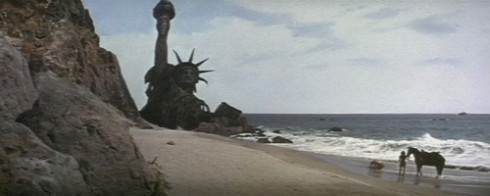
This was going to be about how September 11* served as eerie metaphorical foreshadowing for the decade that followed. Basically: In the 00s, we saw loosely organized nodes of ordinary people (al-Qaeda, bloggers, file sharers) wreak havoc on behemoth institutions that should’ve totally outclassed them in terms of resources and experience (America, the news industry, the music industry). Deep, right? But-
But that thesis didn’t bear more than a few minutes of scrutiny, mostly because I couldn’t think of any examples beyond those three. (It seemed especially delinquent not to mention, you know, the economy just because I couldn’t figure out how to fit it in.) I mean, I do think the terrorism and the Daily Kos and the Pirate Bay are all a result of the same underlying truths about how technology has shifted power away from big corporate organizations to individuals and small groups-but honestly (and not surprisingly), the argument was not lending itself well to a several-hundred-word blog post.
That said, this was still totally the decade when institutions crumbled.
Obviously, the 90s set the stage for it, but seriously, ten years ago, was not everything a distant-seeming threat? I graduated from journalism school in 1999, and yes, professors were talking about how the Internet was going to affect newspapers (no one thought it would affect TV news, because online video was not going to happen for so long), but it’s not like anyone had lost a job over it. As for music and terror, they sort of went hand in hand, because the rise of rap-rock was about the scariest thing ever. Anyway, the RIAA was fretting over Napster, but most of us still bought CDs, and getting blown up only happened in much browner countries, or Ireland. And the economy wasn’t so hot then, either, post-dotcom-bubble, but it wasn’t like today.
Also: The Star Wars trilogy was an incontrovertible, uncorrupted masterpiece of mainstream storytelling (as was Indiana Jones, for the most part!). Apple was the perpetual underdog to Microsoft, and the choice of the punctilious and pampered. Even if you didn’t like The New York Times, you were pretty sure they weren’t making up stories out of thin air, and that they’d be around forever. “Lennon/McCartney” was sacrosanct. Dan Rather, Peter Jennings, Ted Koppel, and Tom Brokaw-all still on the air. Generally, “scientist” and “expert” were regarded as highly thought of, even if they couldn’t figure out whether eggs were bad for you or not. People cared about baseball, especially Red Sox fans. Gay marriage sounded kinda crazy! America was very clearly the good guy, at least to most Americans. And Christmas shopping was a frantic annual hell-day that meant getting in a car and going somewhere full of people and decorations and music. Whereas this year, I did mine at three o’clock in the morning in a cold and silent basement office.
The point is, there was an element of certainty to everything in the pre-millennium, and it might have been an illusion, Michael-indeed, it was; a lot of the above hadn’t been institutions for all that long themselves-but also it wasn’t. There really was a little more certainty, because there were: (1) more experiences shared by larger groups of people, (2) fewer experiences overall, and (3) less ongoing and pervasive analysis of said experiences.
Not that I am complaining about what we have now. Yeah, it’s annoying when you find some dude with an “American Dad” avatar calling Thomas Merton an uninformed asshat, but I suppose it’s all ultimately for the greater good. (And obviously, gay marriage not sounding crazy anymore is a win. Oh, and: black president.) It would be easier if people would shut up and blindly accept the shit that most of us know is true, but that’s not going to happen, and also it would be fascism, and besides, “the shit that most of us know is true” has become an increasingly smaller category.
Bertrand Russell said the great discovery of the 20th century was the technique of the suspended judgment. Ha! He may have been right, but it sure doesn’t seem like anyone told the 21st century (although I will have to think about it some more and get back to you later, ha ha). On my more optimistic days, though, I can see how the new media have started to bring that lesson home in the new millennium. The proliferation of opinions out there-reasonably well-thought-out opinions, even-makes it tough for all but the willfully obstinate not to notice that they might be wrong, or at least not the only one who’s right. Not that the willfully obstinate are going away soon or not a serious force to be reckoned with-but even the ferociousness with which they cling to their long-held mind-sets is pretty telling evidence of how badly so much of what they depended on is breaking down.
None of this is news, and you could argue, of course, that the past decade hasn’t been any more institutionally crumbly than those previous to it. And you may be right and I may be wrong, but as should be obvious from the preceding paragraphs**, it’s the sort of question we can no longer fool ourselves into thinking we can answer definitively. SO WHERE DOES THAT LEAVE US?
This fall, I reread the Book of Ecclesiastes, which was already dealing with existential crises and the ephemerality of everything, the lack of reliability inherent in our occupation of these four dimensions, and the rest of it so, so long ago. Vanity, vanity, all is vanity; useless, useless, everything is useless. But:
Then I commended mirth, because a man hath no better thing under the sun, than to eat, and to drink, and to be merry: for that shall abide with him of his labour the days of his life, which God giveth him under the sun.
Not very deep, I know. But it promotes as timeless an institution as you’re likely to find, in this or any decade. Happy New Year.
Josh Wimmer promises this was better than the 9/11 thing.
* 2001.
** By which I mean: I am totally the one who is right.

